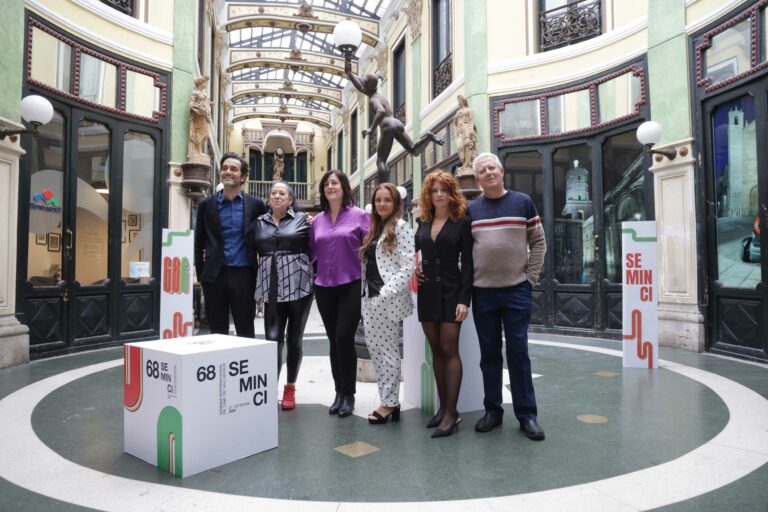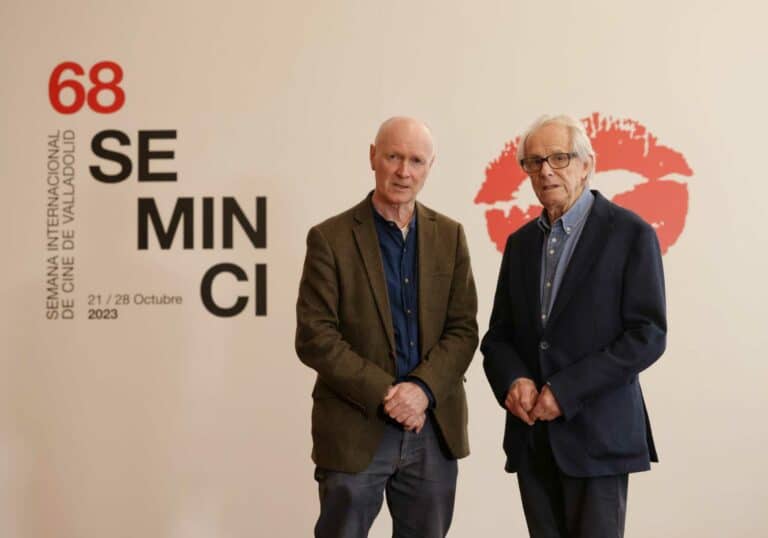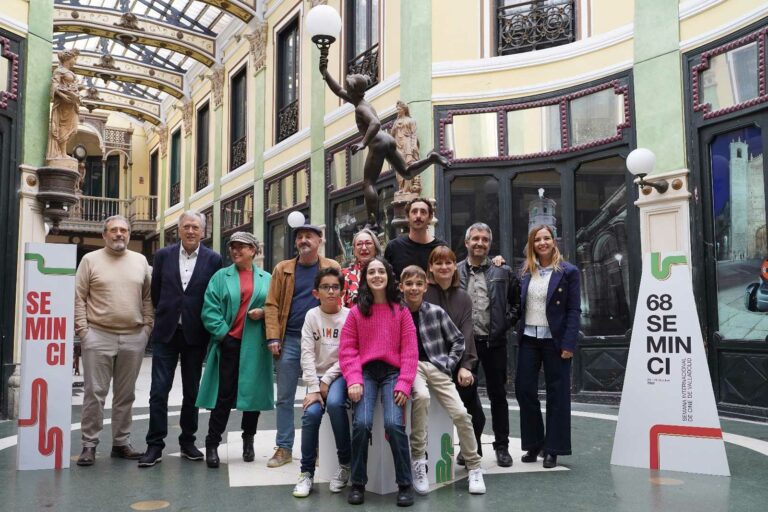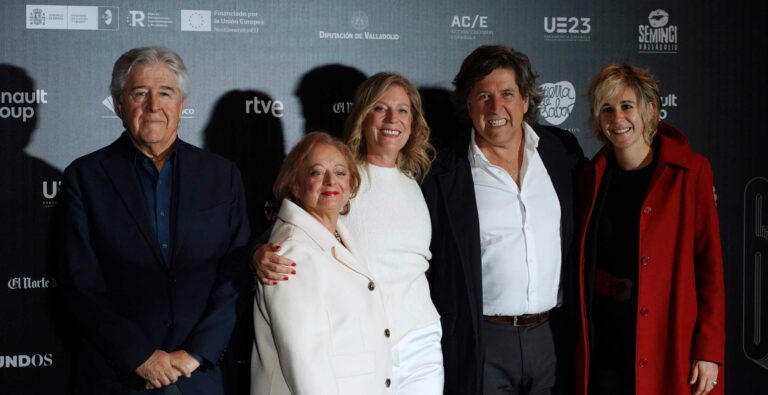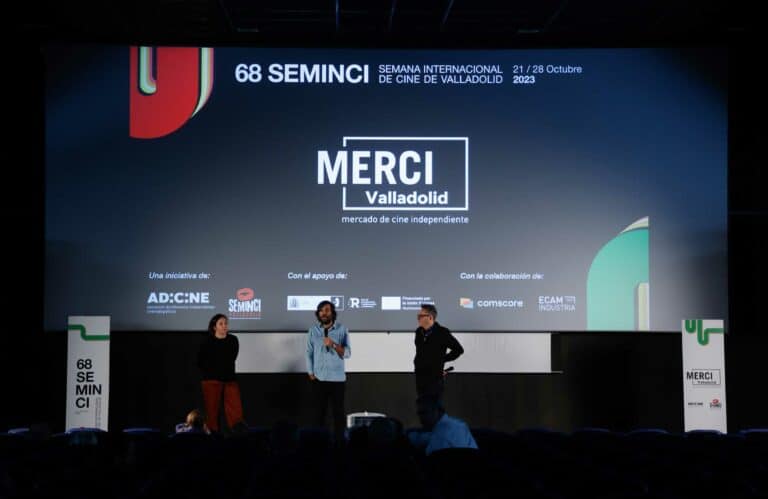
29/10/2020.- Iranian director Ahmad Bahrami presented this Thursday on the 65th Seminci’s Official Section his feature film The Wasteland, set in one of the thousand artisan brick factories that are still active in his country, and filmed in black and white. The Iranian filmmaker attended the event with the film’s producer Saeed Bashiri, editor Sahar Yavari, actor Ali Bagheri, and casting director Nahid Azizi Sedigh. He had a special thought for his mentor, Abbas Kiarostami, who has a long-standing and close relationship with the festival, and he highlighted that “humans tend to see things in black or white”, which has been proved thanks to films, and that he himself has seen things the same way many times.
The film is structured around continuous repetitions that show the spectator different perspectives from which one only event can be seen, which is why it’s developed in a place that is typically monotonous. “The characters, as we realize in the film, are also in a state of repetition and live in that monotony”, he said before explaining that in Iran there were about 10,000 brick factories, a thousand of which are still operating.
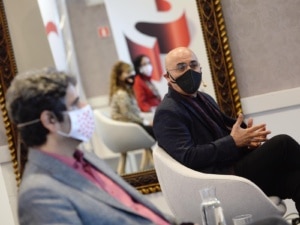
The film puts on the table different topics, one of them that of work relations between workers and employers. For the producer, Saeed Bashiri, that is one of the aspects of the project that really grabbed his attention: “It seemed incredible to be able to show it, to bring up this issue, which is very important for society”.
“When I read the film I fell in love with it, with the subject, with how everything was intertwined”, he acknowledged before assuring that the reality it shows is, precisely, real, since in those factories they work that way and there are such relationships, which over the years have been extended to other areas. Likewise, the producer mentioned the coexistence between different nationalities in the country, represented in the film by the Iranians and the Kurds, which historically has been marked by affection, as he has stressed.
Nahid Azizi Sedigh, the casting director, explained how she worked closely with the director when choosing the actors but, especially, she emphasized the cinema’s role in showing us or turning our head towards realities that we would otherwise never get to know. “I think that films are not going to change the world, that is impossible, but maybe they can make you turn your head and look in directions that you wouldn’t look otherwise”.
Along these lines, she admitted the power that the seventh art has to change society and show the “dark” side of things, which forces spectators to at least take a minute when they come across those realities “to look at those people and think that they exist, that they are there”.
The Wasteland already has permission to be screened in Iran, although Bahrami assured that the high probability that it will be a candidate to represent his country in the race to the Oscars will allow for the premiere to take place very soon.



